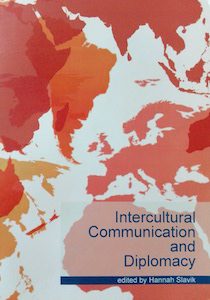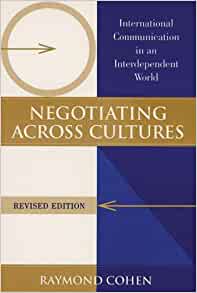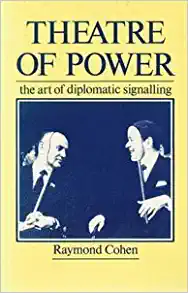Topics covered include basic theory, intercultural communication in practice in diplomacy, negotiation and conflict resolution, professional and organisational cultures, and training for diplomats. The papers in this volume approach the topic of intercultural communication and diplomacy from a wide range of cultural perspectives, as the authors originate from 17 different countries and a variety of professional sectors, including foreign services, universities, businesses, and non-governmental organisations.
Contents
- Introduction – Hannah Slavik
- Diplomats as Cultural Bridge Builders – Geert Hofstede
- Lessons from Two Fields: A Diplomat and an Interculturalist Converse – Lewis R. Macfarlane and Heather Robinson
- Language, Culture and the Globalisation of Discourse – Diana M. Lewis
- Portraying the Religions of the Mediterranean – Peter Serracino Inglott
- The Impact of Cultural Diversity on Multilateral Diplomacy and Relations – Dietrich Kappeler
- On the Importance and Essence of Foreign Cultural Policy of States: The Interplay between Diplomacy and Intercultural Communication – Heinrich Reimann
- Cultural Content on the Websites of Diplomatic Systems – Valentin Katrandzhiev
- Diplomacy on a South-South Dimension: The Legacy of Mao’s Three-Worlds Theory and the Evolution of Sino-African Relations – Sandra Gillespie
- Asymmetry of Cultural Styles and the Unintended Consequences of Crisis Public Diplomacy – R. S. Zaharna
- Multiculturalism for the Masses: Social Advertising and Public Diplomacy Post-9/11 – Biljana Scott
- Making the “Other” Human: The Role of Personal Stories to Bridge Deep Differences – Nike Carstarphen
- Intercultural Communication in Macedonia: Different People, Different Stories – Marina Tuneva-Jovanovska
- Communication Barriers to Negotiation: Encountering Chinese in Cross-Cultural Business Meetings – Yunxia Zhu and Sun Zhu
- Jargon, Protocols and Uniforms as Barriers to Effective Communication – Stefano Baldi and Eduardo Gelbstein
- Organisational Culture of UN Agencies: The Need for Diplomats to Manage Porous Boundary Phenomena – Raymond Saner and Lichia Yiu
- Challenges Facing Women in Overseas Diplomatic Positions – Caroline Linse
- Roma Rights Activists and the Political Establishment: Communication Problems and Barriers – Valeriu Nicolae
- A Clash of Professional Cultures: The David Kelly Affair – Biljana Scott
- Misunderstood: The IT Manager’s Lament – A Case Study in Inter-Professional Miscommunication – Eduardo Gelbstein
- Diplomacy, International Intervention and Post-War Reconstruction: Interactions between States, International Organisations and Local Authorities in the Implementation of the Dayton Accords for Bosnia and Herzegovina – Nadia Boyadjieva and Kostadin Grozev
- The Birth and Evolution of a Diplomatic Culture – Dietrich Kappeler
- The Idea of Diplomatic Culture and its Sources – Paul Sharp
- Diplomatic Culture and its Domestic Context – Kishan S. Rana
- ‘Control Yourself, Sir!’: A Call For Research into Emotion Cultures in Diplomacy – Wynne Elizabeth Russell
- On Intercultural Training of Diplomats – Alena Korshuk
- An Intercultural Model for Diplomacy Training in New Zealand – Yunxia Zhu
- Intercultural Competence and its Relevance for International Diplomacy – Daniel J. Kealey, Doug MacDonald and Thomas Vulpe
- European Challenges to Cross Cultural Borders – Elena A. A. Garcea






